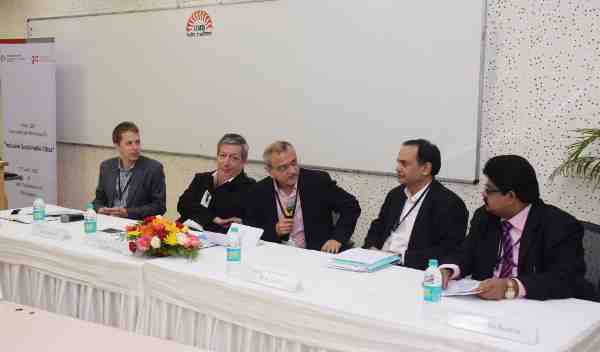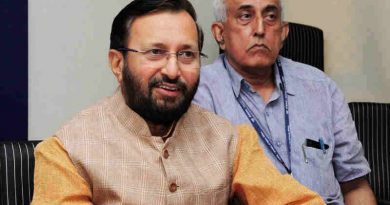How Slums and Poverty Plague Indian Cities

Experts at the international conference on ‘Inclusive Sustainable Cities,’ hosted by IIM Bangalore (IIMB) on Sunday, advise Indian city planners to steer clear of romantic hype and focus on ground reality and governance. It was observed at the conference that “India’s cities have a plethora of plans but little vision or value.”
“Many of our Acts and regulations are antiquated; we should rewrite them. What we need are modern laws and collaborative individuals who can work with the system. Only then can we build sustainable cities,” observed S. K. Joshi, Principal Secretary, Telangana state, remarking that “while cities in India had a plethora of plans, they singularly lacked vision and had failed to take into account ground realities such as slums and poverty.”
[ How Pollution Makes Delhi a Poisonous Gas Chamber ]
Discussing the concept of sustainable and inclusive cities, analyzing strategies for sustainability, sharing global experiences and listing local challenges with perspectives from municipalities and city corporations, the one-day IIMB-GIZ International Workshop on ‘Inclusive Sustainable Cities,’ hosted at IIMB on Sunday (April 12), had plenty of examples drawn from the field, including Mandur, the controversial landfill on the outskirts of Bangalore.
Wondering why peripheral villages, towns or the outskirts should be treated as dumps of main cities, A. Damodaran, Workshop Chair and MHRD Chair Professor of IP Management at IIMB, said: “Why can’t the main city handle its own dirt? That’s because planning agencies seldom take real-life challenges into account.”
[ Can ‘Clean India’ Clean India? No Way. ]
According to IIMB, Prakash Javadekar, Union Minister for Environment, Forests and Climate Change, who joined the conference on video from New Delhi, said: “This is not about making our cities smarter in terms of posh buildings and malls but about sustainable living.”
Citing the example of Paryavaran Bhawan, the headquarters of his ministry in New Delhi, Javadekar said he hoped to see more people and businesses adoption green technology.
Lauding Prime Minister Narendra Modi for acting on the mission of creating sustainable cities, he said institutions like IIM Bangalore and GIZ should take the lead in providing research insights into the challenges of creating inclusive cities.
[ Mr. Modi, When Will You Come Back to India? ]
In his opening remarks, Sushil Vachani, Director, IIM Bangalore, said: “I know I am preaching to the pious – you are all aware of the effects of climate change. In recent years, there is a better balance in the discourse on how to mitigate the effects of climate change and how to adapt. However, there is a need to develop and scale innovative solutions while tackling challenges be it climate change, migration or poverty.”
The workshop surveyed ongoing research on sustainability and inclusivity in the context of the cities in developed and emerging countries. It also sought to provide cross-continental perspectives in managing natural resources.
In the picture above: (L-R) Jan Beermann, Environmental Policy Research Centre, Germany; Harry Lehmann, Head of Division, Federal Environment Agency, Germany; Sushil Vachani, Director, IIM Bangalore; S K Joshi, Principal Secretary, Telangana state; and N Baijendra Kumar, Additional Chief Secretary, Chhatisgarh and Chairman of ‘Naya Raipur’ at the IIMB-GIZ International Workshop on ‘Inclusive Sustainable Cities’ at IIM Bangalore on Sunday (April 12).
Photo courtesy: IIM Bangalore






